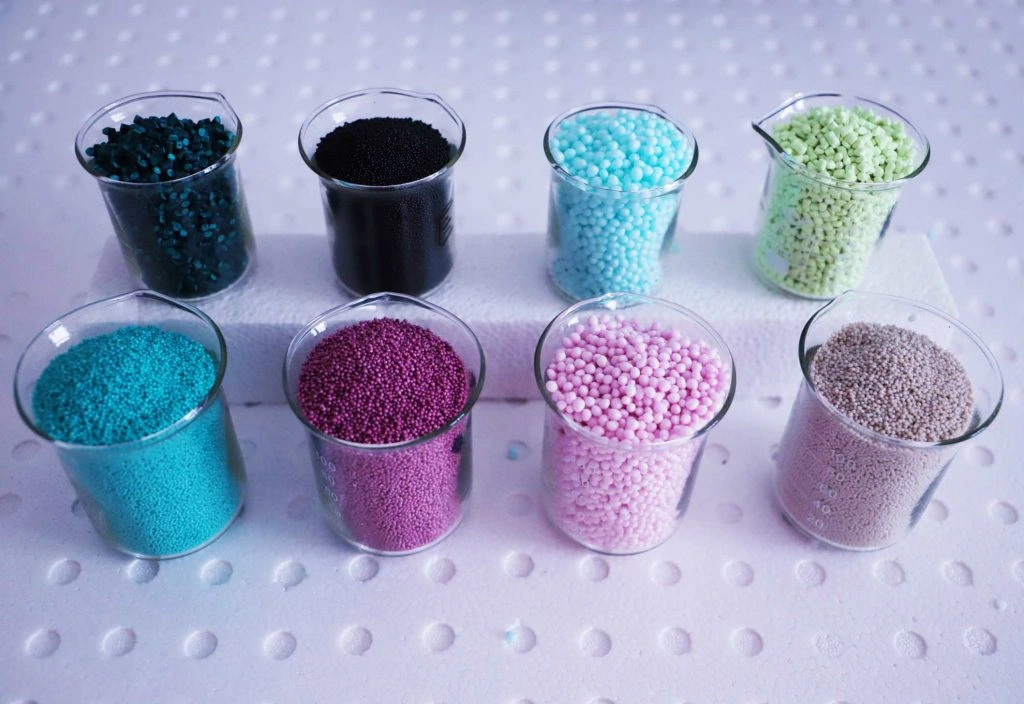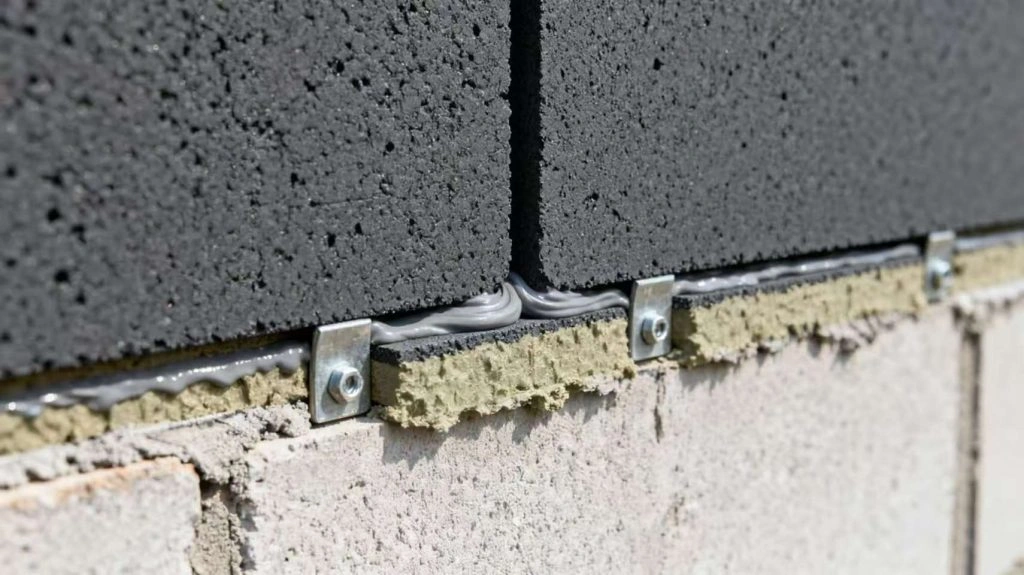مادة الرغوة البيضاء المعروفة باسم البوليستيرين الموسع (EPS) يلعب دورا حاسما في عالمنا الحديث لأنه يظهر في العديد من المنتجات اليومية التي تتراوح من حاويات الأغذية إلى مواد البناء. توفر المادة الاصطناعية المعروفة باسم البوليستيرين الموسع تطبيقات صناعية ومستهلكية متعددة لأنها توفر خصائص بناء وعزل خفيفة الوزن وعمليات تصنيع بأسعار معقولة.

التطبيقات الشائعة لـ EPS في التعبئة والتغليف
تستخدم صناعة التعبئة والتغليف بشكل كبير البوليستيرين الموسع لخصائصه الوقائية والعزلية في تطبيقات مختلفة.
حاويات وخزانات
توفر حاويات الأغذية القائمة على EPS عازلة ممتازة للحفاظ على درجات حرارة الأغذية الساخنة والباردة أثناء النقل والاستخدام. تدعم درجة النماذج الأولية B-Rapid تطبيقات متنوعة ، بما في ذلك التعبئة والتغليف للأجهزة الكهربائية والسيراميك وصيد الأسماك وصناديق الفواكه والخضروات ، بالإضافة إلى العوائم والحرف الحرفية والتغليف العام ، مما يوفر وظائف خفيفة الوزن وهيكل مستقر عبر نطاقات درجات الحرارة المختلفة.
تغليف اللحوم والمنتجات
درجة النماذج الأولية B-Rapid من EPS مناسبة لتعبئة الأجهزة الكهربائية والسيراميك وصيد الأسماك وصناديق الفواكه والخضروات والعوائم والحرف والتطبيقات العامة. يضمن درجات حرارة مستقرة للحفاظ على جودة الأغذية أثناء التخزين والنقل مع توفير وسادة واقية ضد التأثيرات.
التعبئة والحماية للإلكترونيات والأجهزة
يعمل الـ EPS كمادة واقية حيوية في التعبئة والتغليف الإلكترونية لأنه يوفر قدرات امتصاص الصدمات التي تحمي المكونات الحساسة خلال عمليات النقل والتخزين.
التأمين للبنود الهشة
EPS’ الهيكل الخلوي يوفر امتصاص صدمة ممتازة ، مثالية لحماية الإلكترونيات الحساسة والأدوات الزجاجية والأدوات الدقيقة أثناء النقل. B-Material Quick Grade لتعبئة الأدوات الدقيقة تقدم صب سريع وقوة عالية وسطح ناعم وأداء استثنائي.
إدراجات التعبئة والتغليف المصبوبة
إدراجات EPS مصممة خصيصا لتناسب أشكال منتجات معينة تحمي العناصر عن طريق الحفاظ عليها بأمان داخل عبوتها. وظائف المواد القياسية E كنوع EPS المشترك الذي يعمل بشكل جيد مع آلات تشكيل الفراغ التلقائي وآلات تشكيل محرك كهربائي والآلات الهيدروليكية التقليدية لرفع.
استخدامات التعبئة والتغليف الصناعية والتجارية
تخدم EPS وظائف أساسية في عمليات التعبئة والتغليف الصناعية لأنها توفر الحماية والعزل وتوفر حلول فعالة من حيث التكلفة للنقل بالجملة وحماية المعدات.
EPS في البناء ومواد البناء
تعتمد صناعة البناء على البوليستيرين الموسع لعزله المتفوق وفوائده الهيكلية ، مما يجعله مثاليًا لمختلف تطبيقات البناء.
لوحات العزل الحراري
تخدم مادة بوليستيرين الجرافيت FGE (طريقة التعليق) كحل عزل حراري فعال لتطبيقات البناء والصناعة. تلقت عملية بوليمرة تعليق البوليمر الجرافيت المواد الوظيفية لإنشاء البوليستيرين مع خصائص محسنة. تتفوق المواد المعدلة على منتجات EPS التقليدية من خلال توفير قدرات عزل حراري أفضل.
عزل السقف والجدار والأرضية
يعرض S-33 موصلات حرارية أقل من 0.033W / MK في حين أن EPS العادي لديه موصلات حرارية 0.039W / MK مما يؤدي إلى تحقيق S-33 أفضل من 20٪ تحسين أداء العزل الحراري. إن قدرات العزل الحراري المحسنة لـ EPS المحسنة بالجرافيت تجعلها مفيدة للغاية لتصاميم المباني التي تتطلب أقصى قدر من الكفاءة في استخدام الطاقة.
مواد ملء خفيفة الوزن في الهندسة المدنية
يعمل EPS كمادة ملء خفيفة الوزن مناسبة لمشاريع الهندسة المدنية التي تحتاج إلى تقليل الوزن مع الحفاظ على الاستقرار الهيكلي.
سدادات الطرق والجسور
توفر EPS خصائص خفيفة الوزن تجعلها مناسبة لأعمال بناء الطرق عندما تحتاج ظروف التربة إلى حمولات وزن أقل. تحافظ المادة على سلامتها الهيكلية مع مقاومة امتصاص المياه مما يضمن أداء طويل في ظروف بيئية قاسية.
تطبيقات العزل الصوتي
الهيكل الخلوي لـ EPS يعمل كمادة تخفيف صوتية فعالة مما يجعله مناسبًا للتطبيقات الصوتية التي تتطلب تقليل الضوضاء لتلبية معايير الراحة في المبنى واللوائح الصوتية.

منتجات الاستهلاك اليومية المصنوعة من EPS
المواد الموسعة البوليستيرين موجودة في مختلف المنتجات المنزلية الشائعة التي تظهر قدرتها على خدمة أغراض متعددة لاحتياجات المستهلك.
الأكواب واللوحات والأوعية القابلة للتصرف
تتكون المادة القياسية E من EPS العادي الذي يعمل بشكل جيد مع آلات تشكيل الفراغ التلقائي وآلات تشكيل محرك كهربائي والآلات الهيدروليكية التقليدية الرفع. خصائص العزل من EPS تجعل هذه المنتجات مفيدة للحفاظ على درجات حرارة المشروبات مع توفير قبضة مريحة.
مبردات وصناديق الجليد
يوفر EPS عزل حراري متفوق مما يجعله مثاليًا لبناء المبردات وصناديق الجليد التي تبقي درجات الحرارة مستقرة لفترات طويلة. وظائف المواد الخفيفة الإضافية P كEPS قياسي يعمل بشكل جيد مع آلات تشكيل الفراغ التلقائية والآلات الهيدروليكية التقليدية وجميع أنواع آلات الصفائح الكبيرة.
صناعة المواد والمواد الزخرفية
تخضع المواد الخفيفة الإضافية P لعملية رغوة واحدة لإنشاء جسيمات فقاعة خفيفة الوزن ، مثالية للرغوة المتكررة عند ≤18g / l لعمليات متعددة عند ≤10g / l. وهي مناسبة لتغليف المنتجات الميكانيكية والكهربائية والعزل الحراري وعوائم الصيد والحرف اليدوية والمواد الزخرفية والصب والمعدات المقاومة للصدمات الخفيفة والألواح الخفيفة الوزن الكبيرة.
EPS في صناعات النقل والسيارات
تستخدم صناعة النقل البوليستيرين الموسع لحلول واقية خفيفة الوزن لضمان السلامة والكفاءة.
تغليف مكونات المركبات
تعمل الـ EPS كدروع واقي لمكونات السيارات أثناء النقل والتخزين في المستودعات لأنها تحافظ على سلامتها حتى تصل إلى مواقع التجميع. تعمل المادة كمامتص للصدمات والاهتزازات الذي يحمي المكونات الإلكترونية والأجزاء المصنعة بدقة.
حاويات معزولة للسلع الحساسة لدرجة الحرارة
يعمل عزل EPS كطريقة أساسية لنقل المواد الحساسة لدرجة الحرارة التي تشمل الأدوية والمنتجات الغذائية والمواد الكيميائية للحفاظ على ظروف درجة الحرارة المطلوبة أثناء الشحن.
استخدام في الخوذات ومعدات السلامة
تعمل EPS كمادة امتصاص الصدمات التي تمكن استخدامها في معدات السلامة لأنها توزع طاقة التأثير لحماية المستخدمين من الإصابات عندما تحدث الحوادث أو الاصطدامات.
دور HUASHENG في صناعة EPS
هواشنغ تعمل كمصنع رائد يخلق ويوزع حلول البوليستيرين الموسعة المتميزة لتلبية متطلبات السوق المختلفة.
مقدمة لـ HUASHENG كمورد موثوق به
تعمل شركة هواشينغ تشيهانغ (تيانجين) للتجارة الدولية المحدودة كشركة تقوم بإجراء البحث والتطوير وتصنيع وتوزيع مواد EPS. تعمل هواشنغ من قاعدتها الشمالية الغربية لتقديم الخدمات في جميع مناطق الصين مع اتباع استراتيجيتها التنموية الرئيسية “ التصنيع الذكي الأخضر مدفوع بالابتكار.” تعمل الشركة كمصنع EPS الرائد الذي يقدم حلول EPS متميزة لثلاثة قطاعات رئيسية بما في ذلك رغوة EPS المعاد تدويرها للاقتصادات الدائرية وألواح العزل EPS للمباني الفعالة في استخدام الطاقة وتعبئة الرغوة الواقية للوجستيات.
مجموعة من المنتجات التي تقدمها HUASHENG
يوفر HUASHENG لشركائها حبات رغوة EPS عالية الأداء وحلول رغوة EPS مخصصة. يوفر فريقنا حلول دقيقة لجميع متطلبات رغوة EPS من خلال خبرتنا في رغوة EPS المعاد تدويرها ومواد EPS المتخصصة لمختلف التطبيقات.
الصف المشترك EPS
وتشمل الدرجات الثلاث من مواد الطباعة ثلاثية الأبعاد مواد خفيفة إضافية P للاحتياجات العامة للتغليف والبناء ومواد النماذج الأولية B-Rapid ومواد E-standard للتطبيقات القياسية.
مثبطة اللهب درجة EPS
درجة مضادة للاشتعال: المواد مضادة للاشتعال من النوع F، والمواد مضادة للاشتعال الخفيفة من النوع FB، ومواد مضادة للاشتعال من النوع FS، ومواد مضادة للاشتعال من النوع FSH، كلها تلبي متطلبات السلامة الصارمة من الحريق لمواد البناء والتطبيقات المتخصصة.
الجرافيت درجة EPS
يستفيد الأداء الحراري لمشاريع البناء الفعالة في استخدام FGE-Graphite polystyrene (طريقة التعليق) و S-33 Graphite polystyrene (طريقة البثق) و S-32 الجرافيت البوليستيرين (طريقة البثق).
حماية البيئة درجة EPS
تقدم FHE-N-HBCD درجة مقاومة اللهب و FGH-N-HBCD درجة مقاومة اللهب الجرافيت (طريقة التعليق) من درجة حماية البيئة حلول صديقة للبيئة تلبي جميع المعايير البيئية.
الكربون الأسود درجة EPS
تستخدم المادة البوليستيرين الكربوني FGE منخفض التوصيل الحراري المنتج من خلال معالجة التعليق لـ Carbon Black Grade و FGE البوليستيرين الأسود المصنوع عن طريق طريقة التعليق لحماية الأشعة فوق البنفسجية والتأثيرات البصرية الفريدة.
حلول REPS المخصصة
تتضمن عملية إنتاج الدرجات المخصصة البحث والتطوير والإنتاج الذي يتبع احتياجات العملاء لإنشاء مواد ذات خصائص تلبي احتياجات التطبيق المحددة.

استنتاج
يستخدم البوليستيرين الموسع (EPS) على نطاق واسع في الحياة اليومية بسبب تنوعه وهيكله الخفيف الوزن وخصائص العزل الحراري الممتازة وامتصاص الصدمات. وتشمل تطبيقاتها تغليف الأغذية وعزل البناء والمنتجات المتخصصة المحسنة بالمضافات مثل مضادات اللهب والجرافيت. تكاليف الإنتاج المنخفضة، والتصنيع المرن، والعمليات الخاضعة للسيطرة البيئية، بما في ذلك الأنظمة المعتمدة على ISO وخفض الطاقة بأكثر من 30٪ من خلال EPS المعاد تدويرها والإنتاج المثالي، تدفع إلى استمرار اعتمادها عبر الصناعات.
الأسئلة الشائعة
Q1: ما الذي يميز البوليستيرين الموسع من البوليستيرين القياسي؟
ج: البوليستيرين الموسع (EPS) لديه هيكل رغوة الخلوية ، مصنوع من خلال توسيع حبات البوليستيرين بالبخار ، مما يؤدي إلى مادة خفيفة الوزن مع 98٪ من الهواء ، مما يوفر عزل أفضل وامتصاص الصدمات من البوليستيرين الصلب.
Q2: كيف يمكن إعادة تدوير البوليستيرين الموسع؟
ج: البوليستيرين الموسع (EPS) قابل لإعادة تدويره في مرافق متخصصة. منتجات EPS المعاد تدويرها ، مثل تلك من HUASHENG ، خفيفة الوزن ودائمة وفعالة في استخدام الطاقة ، مما يدعم الاقتصاد الدائري من خلال زيادة استخدام المواد المعاد تدويرها.
س3: ما هي الطرق الصديقة للبيئة التي تستخدم في سوق EPS؟
ج: تستخدم صناعة EPS المواد المعاد تدويرها ، والإنتاج الفعال في استخدام الطاقة ، والمضافات الأكثر أماناً مثل مضادات اللهب غير HBCD ، متوافقة مع EU REACH و ROHS ، لإنشاء منتجات مستدامة ذات تأثير بيئي أقل.






